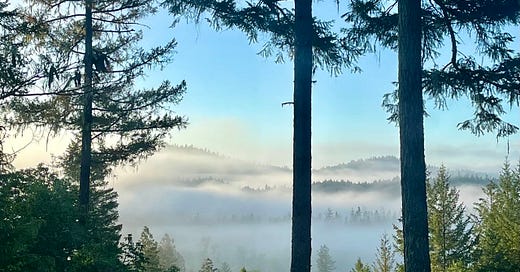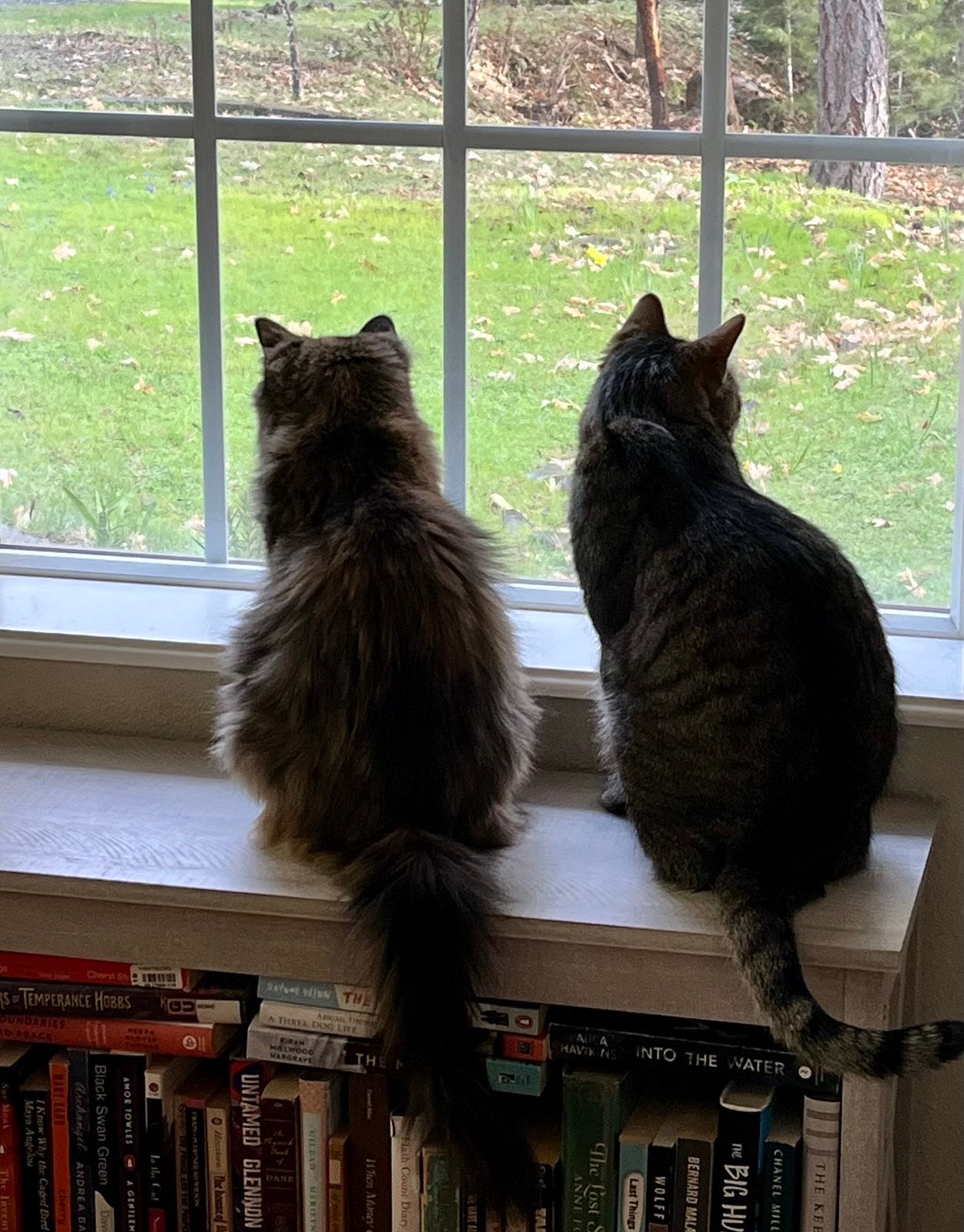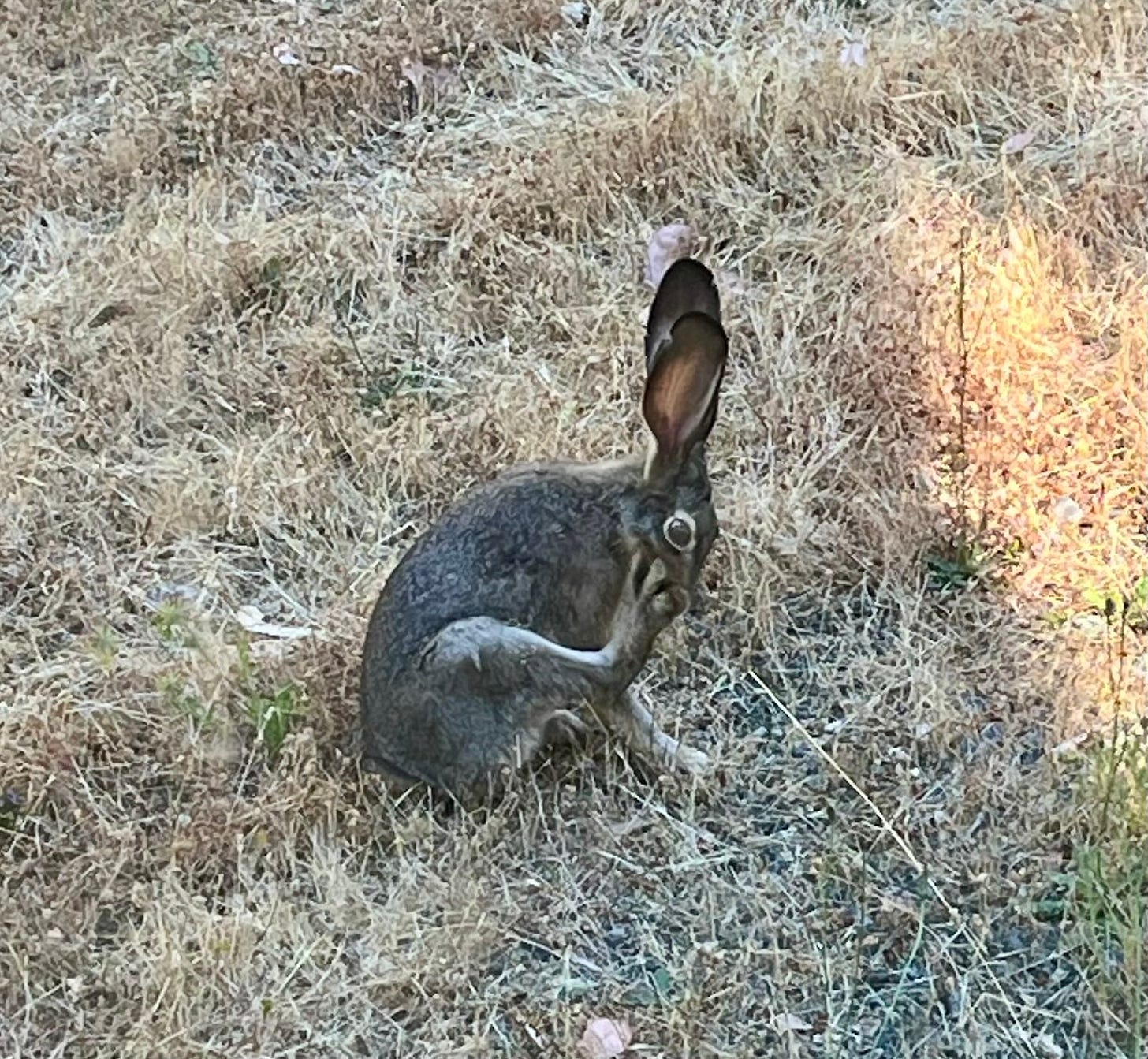I am in one of those seasons where I have far too much to do. All the things are important and all must be done. It does not feel possible to jettison this in favor of that, or to set the one thing aside in order to focus on the other. And yet I must. In such seasons, I feel a flattening and a removal of color. There is a dysphoric synesthesia about overload. For as long as I can remember, the image that has come to mind is that of Dorothy living in Kansas – a flat dreary world of duty, dust, and obligation, whose brightest color is a shade of gray.
There is a website to create. There are grant proposals to write. There are budgets and strategic plans and impact reports to produce. There are writing fellowships to administer; writing fellows to nurture. There are treatments and decks and scripts to read. There are treatments and decks and scripts to write. Also substacks. So many substack ideas! So little time! There is endless creative opportunity, and there is also endless administrivia. The one must be efficiently dispatched to support and sustain the other, and at times, it wrecks my head. I woke up this morning worrying about fonts. I haven't touched my book in weeks.
I have learned —I am learning — that in such moments, I do best if I slow down. It is paradoxical and counterintuitive and it feels wrong. And yet it works. The best thing I can do with that crushing feeling of too-muchness is to create space, to resist the strong amygdaline drive to push and push and push some more. The best thing I can do is sit still, defy the urgent need to be doing doing doing, and let my mind drift, just for a little while. It’s hard to remember to do this when every instinct tells me that I can’t afford to stop. But when I do manage to remember it, it's remarkable how readily the to-do list loses its power to torture.
This morning, when the urgency started up, I remembered to stop. I sat on the sofa, warming my hands on a cup of coffee, and looked out the window at the world. I watched two jackrabbits breakfasting amid the lavender. I listened to ash-throated flycatchers high in the trees, caught glimpses of their yellow bellies as they moved among the leaves. Pip and Jenny Wren watched with me, although with less peaceful and more murderous intent.
II. In praise of beginnings
As I sat and looked at the world, a sentence arrived in my mind: “I write this sitting in the kitchen sink.” It is the first sentence of Dodie Smith's marvelous I Capture the Castle. It has been years since I read the novel, but that spectacular sentence often presents itself to me for admiration. This morning, I admire it, sip my coffee, and watch the jackrabbits follow a deer trail back into the woods.
Now other first sentences are coming to mind.
“There was no possibility of a walk that day." That's Jane Eyre, who had not yet learned what her creator, Charlotte Bronte, knew well, that there is always the possibility, and often the necessity, of a walk, no matter what the weather. I walk in all weathers, and when the weather is bad, I often walk to the rhythm of this line.
Then: “It was admitted by all her friends, and also by her enemies — who were in truth the more numerous and active body of the two — that Lizzie Greystock had done very well with herself.” That’s Anthony Trollope, opening The Eustace Diamonds, which I have not read for probably 30 years, and which I just picked up again the other day when I was struck by a strong Trollope craving. When I read that first sentence, I understood why. He is so very snide, so very conspiratorial. Reading Trollope’s prose is like reading fabulous gossip; he tells a story like he’s telling secrets, whispering scandalous things I was never supposed to hear, but that he’s saved up just for me.
Then: “Whether I shall turn out to be the hero of my own life, or whether that station will be held by anybody else, these pages must show.” That’s David Copperfield, who gave Dickens cover to tell the closely kept secret story of his own horrific boyhood. The sentence expresses an awful fear — that our lives can be hijacked by other people’s stories, that we may be forced to serve the hero’s journey of another instead of serving our own, that we may not even know it’s happened until it is long past, if we ever know it at all. It’s a terrible thought, and it clearly haunted Dickens, who feared that his life never quite belonged to him. It haunts me, too, since Dickens has planted the idea in my mind, as, I imagine, it may now also haunt you.
I love these first sentences.
Sitting snug on the sofa, watching the sun rise, I think about how beginnings matter so very much — not just in novels, but in our days — and how this one is beginning far more happily than I could have imagined when I was lying in bed, worrying about fonts, dreading the moment of getting up.
III. Practicing the art of presence
And then I think about prayer.
Specifically, I think about the definition of prayer that the Irish Catholic poet-priest John O'Donohue offers in his book Eternal Echoes. “Prayer,” he writes, “is the art of presence.” It does not require a church or even belief in God. In fact, prayer is more pure the further away from organized religion it gets. Prayer is natural, he explains. It does not have to be taught. It lives within us, and it is essential to our ability to be who we truly are.
Scientists have found that we are wired for prayer, much as we are wired for story; in fact, prayer may be regarded as a very special kind of story. Prayer is, O'Donohue writes, the “narrative of the soul.” This narrative is our truth. It is who we are when everything else is stripped away, and it is also our belonging, our unbreakable connection to that which is larger than ourselves. Even so, we have a hard time locating this most important story. To get at it, O’Donohue explains, we must find our way into wonder, that state of openness that pulls us out of ourselves, binds us to the beyond, and makes us feel, at a deep, cellular level how very small we are, and yet how vast. The magic of wonder: it allows us to understand that we are nothing and everything at once.
“Where there is no wonder,” O’Donohue writes, “there is little depth of presence.” Prayer, “the art of presence,” may thus also be understood as the art of wonder.
Confession: I've always been a bit confused about prayer.
I was not raised inside a church, despite the best efforts of various friends’ mothers, who, concerned for my heathen soul, sometimes used Saturday night sleepovers as an excuse to sneak me in to morning service and Sunday school before dropping me back home. I came from a scientific family. I learned the word "agnostic" when I was very young, along with the phrase "secular humanist." I understood that this is what we were, what I was, and with it I understood that prayer was for other people, people with religion and a relationship with God. Not being religious, I was never certain what people were doing when they put their hands together and bowed their heads. What was certain: prayer belonged to believers. It did not belong to me.
Now I understand that I have always prayed, have always been praying, have always been fumbling my way into wonder, questing for that feeling of transcendence that is also a feeling of deep, peaceful presence. I understand that I have always done this because I'm human and this is what humans do. That understanding comes with a very particular and beautiful kind of relief.
“Prayer,” O’Donohue observes, “educates your spirit in the art of inner hospitality.” The work of wonder, in the end, is as deeply personal as it is transcendent. If wonder draws you out of yourself, it also “awakens our deeper nature,” bringing with it “a new creativity" and a “new self-possession.” With prayer, "you gain more courage. You become sure about who you are, and no longer need to force either image or identity. When you come into rhythm with your nature, things happen of themselves.”
Prayer, to go back to Dickens, allows us to become the heroes of our own lives. It protects us from losing the thread of our soul’s narrative, from giving someone or something else the power to tell us who we are and what our lives will mean.
IV. Slightly liturgical
All of this, over a cup of coffee, watching the woods wake up. And with it, my overwhelm gives way to perspective. There are reasons why I have chosen to do the things I am doing. These reasons are connected in direct and meaningful ways to my sense of who I am and what I am doing here on this earth. Overwhelm is not the emotion to bring to them. Nor is resentment or dread. Rather, the work of the day deserves patience, care, and clarity of intention. Each piece of it deserves to be done with focus that honors the work, and compassion for the one doing it, namely me. I'm not a widget factory, though I know what it’s like to be treated like one. It's a radical act not to treat myself this way when so much habit and history urge me in that direction.
And so I sit with my coffee and, I suppose, I pray. I pray about wildlife and writing and beginnings and belonging; I pray about purpose and priorities, about the meaning of work and the work of making meaning. I pray about wonder, and wonder about prayer, and along the way I get lost in a moment that is also a chapter in a story, a wrinkle in time in the narrative of the soul.
Just as quickly, I return to myself, and to this morning of this day in which there is ever so much to be done.
And then I get down to work and it is good. Among other things, I make this post. If you’ve ever done time with overwhelm, if you’ve ever felt your life shrink to the size of your to-do list, this post is for you.






I love your perspective on prayer based on presence rather than faith. It reminded me of a poem I had written long ago. Just sharing for what it is worth:
A Sort of Prayer
On rage-filled nights
I reinvent you, my god,
and spew angry bile
at your black-hole divinity.
Leave what is vile,
absorb what calms,
like a wash of sleep
after a nightmare.
Had I faith, I would pray
not to a formless void
that contains galaxies
but to all that is
gentle in us.
And praying, re-awaken my spirit
from numbness,
the distance of fear.
Teach me, o sky-faced god,
to pray:
Teach me words
that do not spin
in futile orbits
around the universe
but touch
what is best in me.
Wonderful sentiments. I was walking my dogs this morning and thinking about how when I'm the busiest, taking time away from the business, is when things coalesce into a kind of purity of ethereal otherness. It's like it doesn't exist until I come back to the busy space, and then it's back, but by then, my mind has refreshed, my body has relaxed a little, and sometimes inspiration hits. Or it doesn't, but at least I'm able to get back into the grind without bitterness. That, to me, is the socratic means of equilibrium.